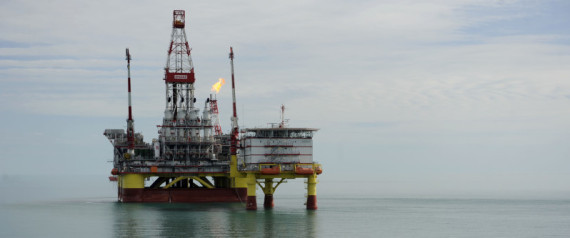Releasing 30 million barrels of oil from the emergency reserve
Wary of a new surge in gas prices, the Obama administration said Thursday it is releasing 30 million barrels of oil from the country’s emergency reserve as part of a broader international response to lost oil supplies caused by turmoil in the Middle East and North Africa, particularly Libya.
The release from the U.S. Strategic Petroleum Reserve will be the largest ever, amounting to half of a 60 million-barrel international infusion of oil planned for the world market over the next month.

White House officials would not predict how the release will affect prices at the pump, although the move is intended to increase U.S. supplies during the peak summer driving season.
“We are taking this action in response to the ongoing loss of crude oil due to supply disruptions in Libya and other countries and their impact on the global economic recovery,” Energy Secretary Steven Chu said.
The move comes as retail gasoline prices dropped for the 20th consecutive day, down a penny from Wednesday, to $3.61 per gallon, according to AAA, Wright Express and the Oil Price Information Service. That’s about 21 cents lower than a month ago.
The timing brought criticism from business groups and Republican lawmakers, who accused President Barack Obama of playing politics with the country’s oil reserves, which are intended to address emergencies.
“The Strategic Petroleum Reserve is an emergency lifeline to protect our nation against critical shortages in our oil supply and shouldn’t be used as a Strategic Political Reserve to boost the popularity of elected officials,” said Charles Drevna, president of the National Petrochemical & Refiners Association.
The administration’s action will do little to benefit consumers while leaving the nation vulnerable to hurricanes or other natural disasters, or a foreign crisis that causes a real supply shortage, said House Speaker John Boehner, R-Ohio.
“Everyone wants to help the American people and lower prices at the pump,” Boehner said, “but by tapping the Strategic Petroleum Reserve, the president is using a national security instrument to address his domestic political problems. This action threatens our ability to respond to a genuine national security crisis.”
Even some Democrats were puzzled by the move.
“This decision would have been more timely if made when the disruption in Libyan oil supplies first occurred” in February, said Sen. Jeff Bingaman, D-N.M., chairman of the Senate Energy and Natural Resources Committee. Still, Bingaman said he hopes the move helps deflate “speculative froth in the markets” and drives prices down.
The administration said the uprising in Libya has resulted in a loss of about 1.5 million barrels of oil a day. The International Energy Agency said roughly 132 million barrels of Libyan light, sweet crude had been removed from the world market as of May.
High oil prices and the resulting increase in the cost of gasoline have contributed to an economic slowdown and have put increased political pressure on Obama.
The Republican-led House has passed a series of bills aimed at speeding up and increasing domestic production. GOP leaders escalated their rhetoric in response to Obama’s move.
Rep. Doc Hastings, R-Wash, chairman of the House Natural Resources Committee, said the Obama administration’s “anti-American energy policies have left the United States increasingly vulnerable to the whims of the world oil market and OPEC’s erratic decisions on oil supply.” Hastings and other Republicans called for increased production of oil in the Gulf of Mexico, Alaska and public lands.
Rep. Edward Markey, D-Mass., called the GOP criticism off the mark, noting that 30 million barrels amounts to less than 5 percent of the 727 million barrels stored in salt caverns along the Texas and Louisiana coasts.
“With our economy teetering on the brink of a double-dip recession, and American families still struggling during peak driving season, this is the one tool America has at her disposal to immediately help drive down prices at the pump,” said Markey, who has called on Obama to tap the reserve for months.
The government is wary of dipping into the petroleum reserve, releasing oil from it only in extreme cases, such as hurricanes, that affect oil supplies. The reserves were created in response to the Arab oil embargo in the 1970s and last tapped in 2008 after hurricanes Gustav and Ike hit.
Oil prices dropped Thursday, the same day the IEA announced the plan to release a total of 60 million barrels of oil and a day after Federal Reserve Chairman Ben Bernanke warned that the U.S. economy was recovering more slowly than expected.
A senior administration official said Obama determined in an April 26 meeting with top economic advisers that the oil supply disruptions in Libya were severe and would have a significant impact on oil prices. Obama asked aides to come up with options for opening the strategic petroleum reserves and to consult with international partners, most notably Saudi Arabia.
The official said Obama is deeply concerned about the impact the disruption in oil supplies could have on the U.S. and global economies. Obama is open to releasing more oil from U.S. reserves, the official said, though no decision on doing so has been made.
Because the U.S. oil reserves are at historic highs, the administration believes there will be no negative long-term impact to releasing 30 million barrels at this time.
The official spoke on the condition of anonymity in order to discuss internal administration deliberations.
Source: Huffington Post























































